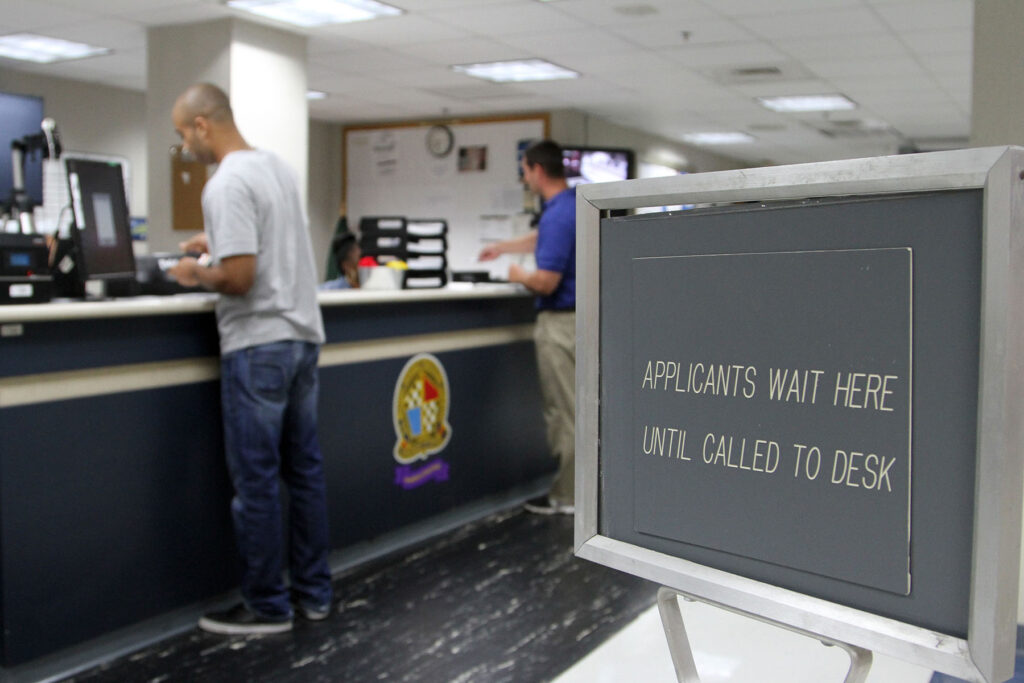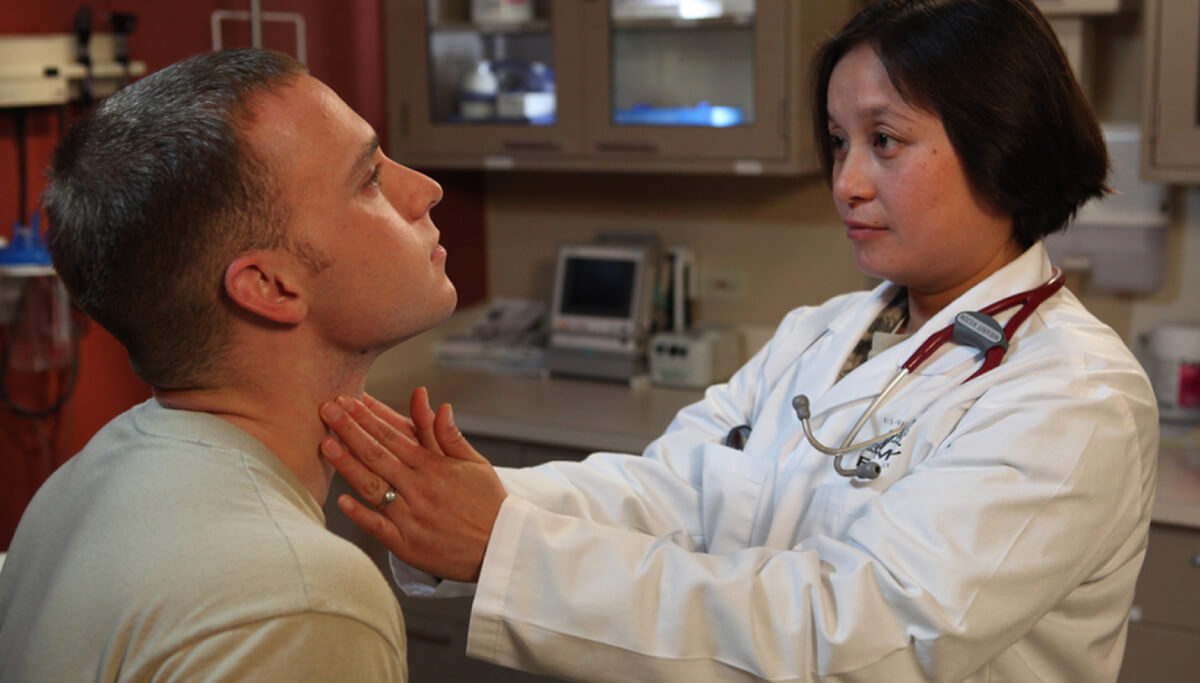Table of Contents
When individuals embark on the journey of joining the military, there are numerous questions and uncertainties that arise. One common concern is whether the military tests for sexually transmitted diseases (STDs) at the Military Entrance Processing Station (MEPS).
The health and readiness of recruits are of paramount importance, so it is crucial to understand the procedures and protocols in place.
In this blog post, we will delve into the topic and shed light on whether the military conducts STD testing at MEPS. By addressing this important aspect of the enlistment process, we aim to provide clarity and alleviate any apprehensions potential recruits may have regarding their medical screening at MEPS.
Does The Military Test For STDs At Meps?
At the Military Entrance Processing Station (MEPS), prospective military recruits undergo a series of medical evaluations to determine their fitness for service. These evaluations include physical examinations, medical history reviews, and laboratory tests. While MEPS screens for various medical conditions and infectious diseases, the specific testing protocols for sexually transmitted diseases (STDs) can vary.
MEPS aims to ensure that recruits are in good health and free from contagious diseases that could pose a risk to other service members or compromise their ability to fulfill their duties. While not all MEPS locations perform routine STD testing, some may include it as part of their standard medical evaluation process.
Recommended: How Do You Know If You Passed MEPS Drug Test?
The decision to test for STDs at MEPS depends on several factors, including the policies of the specific branch of the military and any local or national health guidelines in place at the time. Typically, when a recruit undergoes the medical examination, they are asked questions about their sexual history, including any past or current STD diagnoses, sexual partners, and high-risk behaviors.
Based on the information provided during the interview, medical personnel at MEPS will determine whether additional testing for STDs is necessary. If deemed necessary, they may conduct tests for common STDs such as chlamydia, gonorrhea, syphilis, and HIV. The specific tests performed can vary, but they are typically conducted using blood, urine, or swab samples.
It’s important to note that the military takes the privacy of medical information seriously. The results of STD tests and other medical examinations are generally kept confidential and are not disclosed without the individual’s consent, except in cases where a communicable disease could affect the health and well-being of others in the military.
If a recruit tests positive for an STD, they will be provided with appropriate medical treatment and counseling. Depending on the severity and nature of the infection, it may impact the individual’s military service and deployment status.
It’s crucial for prospective military recruits to be honest and forthcoming during their medical evaluations at MEPS. Failing to disclose a previous STD diagnosis or engaging in high-risk behavior could not only affect the individual’s health but also have broader implications for the military community.
The Importance of Medical Screening at MEPS
Medical screening plays a vital role in the Military Entrance Processing Station (MEPS) process, as it ensures that prospective military service members are physically and mentally fit to serve. The thorough medical evaluation conducted at MEPS serves multiple purposes, including safeguarding the health and well-being of recruits, ensuring operational readiness, and maintaining the overall effectiveness of the armed forces. Why is medical screening at MEPS crucial in the enlistment process?
The medical information provided in this article is provided as an information resource only. This information does not create any patient-physician relationship and should not be used as a substitute for professional diagnosis and treatment.
Recommended: Can Alcohol Be Detected In Blood Tests?
Identifying Medical Conditions
The primary objective of medical screening at MEPS is to identify any underlying medical conditions or physical limitations that could impact a recruit’s ability to perform their duties effectively or pose a risk to their health during training or deployment. Early detection of these conditions allows for proper medical management and ensures that recruits receive the necessary care and treatment.
Protecting Recruits’ Health
Military service often involves physically demanding tasks and exposure to various environmental hazards. By conducting comprehensive medical evaluations, MEPS aims to protect the health and well-being of recruits. Through screenings, potential risks associated with existing medical conditions or undiagnosed ailments can be identified, minimizing the likelihood of exacerbation or complications during training or active duty.
Ensuring Operational Readiness
The military relies on its personnel to maintain operational readiness and fulfill critical roles. By thoroughly screening individuals before enlistment, MEPS helps to ensure that recruits possess the physical and mental capabilities required to meet the demands of military service. By identifying any limitations early on, appropriate accommodations or alternative career paths can be explored, allowing the military to assign personnel effectively and maximize their potential contributions.
Preventing Disease Transmission
Medical screenings at MEPS also play a significant role in preventing the spread of infectious diseases within the military community. During the evaluation process, recruits are assessed for contagious conditions, such as tuberculosis, sexually transmitted infections, or other communicable diseases. Prompt identification of these conditions enables necessary treatment and prevents potential transmission within the military population.
Recommended: Is It Better To Fail a Drug Test Or Refuse?
Promoting Mental Health
In addition to physical health, mental well-being is a critical aspect of military service. MEPS screens recruit for mental health conditions to ensure they have the necessary resilience to cope with the unique challenges associated with military life. Identifying pre-existing mental health conditions enables appropriate care and support to be provided, reducing the risk of adverse outcomes and enhancing overall mental readiness.

The Military’s Approach to STD Testing
Sexually transmitted diseases (STDs) are a significant public health concern, and the military recognizes the importance of proactive measures to address them. The armed forces have developed a comprehensive approach to STD testing to protect the health and well-being of service members, ensure operational readiness, and prevent the spread of infections within the military community. Let’s explore the military’s approach to STD testing and highlights its significance in maintaining the health and readiness of military personnel.
Pre-Service Screening
Before joining the military, recruits undergo medical evaluations, which include STD testing. This pre-service screening is crucial in identifying any existing infections and ensuring that recruits enter the military free of contagious diseases. It helps protect the health of individual recruits and prevents the spread of STDs within the military population.
Routine Testing
The military understands the importance of ongoing monitoring to detect and treat STDs promptly. Regular testing is conducted for service members, especially those who are sexually active or at higher risk due to their job requirements. Routine testing allows for early identification of infections, providing timely treatment and preventing the further spread of STDs.
Confidentiality and Privacy
The military places a strong emphasis on maintaining confidentiality and privacy when it comes to STD testing. Service members can seek testing and treatment without fear of stigmatization or negative consequences. Medical professionals within the military are bound by strict confidentiality guidelines, ensuring that personal health information is protected and shared only on a need-to-know basis.
Recommended: Early STD Testing: Why Is it Necessary To Get Tested?
Education and Prevention
In addition to testing, the military emphasizes education and prevention strategies to reduce the incidence of STDs. Service members receive comprehensive training on safe sexual practices, including the use of condoms and the importance of regular testing. Educational programs also focus on promoting open communication about sexual health, reducing the stigma surrounding STDs, and encouraging responsible behavior.
Treatment and Support
If a service member tests positive for an STD, the military provides appropriate treatment and support services. Medical professionals offer counseling, education, and access to necessary medications to ensure prompt and effective treatment. Ongoing support is also available to help service members manage their condition and minimize the impact on their health and career.
What STDs are Tested at MEPS?
The specific STDs tested for at MEPS may vary based on the military branch and individual circumstances. However, common STDs that are typically screened for include HIV/AIDS, syphilis, gonorrhea, and chlamydia. These tests are performed to identify infections that can be easily transmitted and have long-term health consequences if left untreated.
Confidentiality and Privacy Concerns
The military takes privacy and confidentiality seriously, including during the STD testing process. Medical information, including STD test results, is protected by strict confidentiality guidelines. Test results are typically only shared on a need-to-know basis and are not disclosed to unauthorized individuals. This ensures that personal medical information remains secure and does not affect an individual’s military career.
Recommended: Mycoplasma Genitalium: The New STD You Must Know
FAQs
Does a positive STD test result disqualify an individual from military service?
A positive STD test result does not necessarily disqualify someone from military service. Each case is evaluated on an individual basis, taking into account the specific circumstances and severity of the infection. In many cases, appropriate treatment can be provided, and the individual may still be able to serve.
Can I refuse an STD test at MEPS?
While it is generally expected that recruits will comply with the medical screening process, including STD testing, it is essential to discuss any concerns or questions with the medical staff at MEPS. They can provide guidance and address any specific issues you may have.
Will I be notified of my STD test results?
Yes, recruits are typically notified of their test results, including STD test results. The military understands the importance of providing individuals with their medical information to ensure they have a clear understanding of their health status.
How can I ensure my privacy during the STD testing process?
Military medical professionals are bound by strict confidentiality regulations. They are trained to respect privacy and maintain the security of medical information. If you have any concerns about privacy during the testing process, it is recommended to discuss them with the medical staff at MEPS.
Recommended: Can a Yeast Infection Turn Into an STD?
Can the military provide treatment for STDs?
Yes, the military provides medical care, including treatment for STDs, to service members. If a recruit tests positive for an STD at MEPS or during their military career, appropriate medical treatment will be provided to ensure their health and prevent the spread of the infection.
Conclusion
The military recognizes the importance of maintaining the health and well-being of service members and the overall military population. STD testing at MEPS is part of the comprehensive medical screening process to ensure the physical readiness of recruits. By addressing potential health concerns, including STDs, the military can provide appropriate care and support while upholding privacy and confidentiality standards. If you have any specific concerns or questions regarding STD testing at MEPS, it is advisable to consult with the medical professionals at your local MEPS facility.





More Stories
Ashwagandha’s Impact on Cortisol Levels in Stressed People
Health care cyberattack ‘likely one of the worst,’ expert says
Accessing Medicinal Cannabis in the UK: A Comprehensive Guide